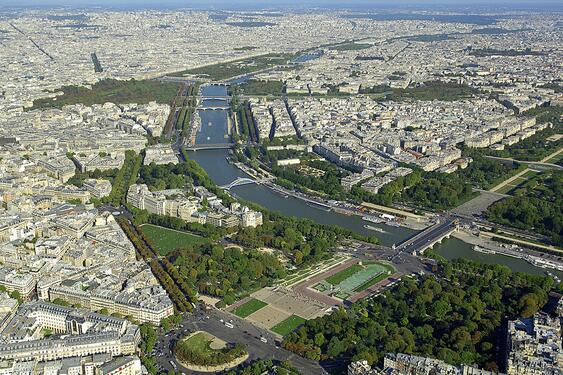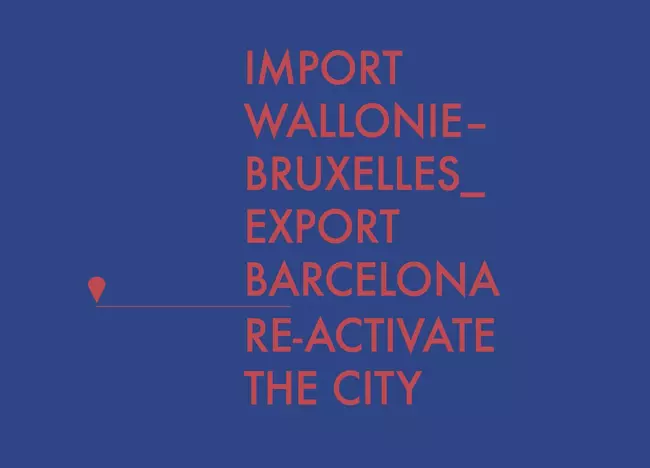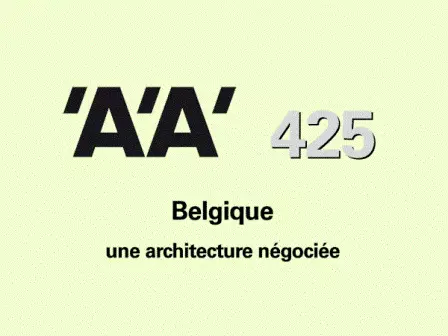- Posts
Published on 15/04/2011
"Architectural ambitions, a new type of architects"

© Baukunst The view across the border.
The architectural panorama of French-speaking Belgium remained a mystery to me until a year ago, when an excursion revealed the talents and dynamics in this field*. Little exported, lacking representativeness through projects abroad [...] and enjoying little coverage in the international press, this production embodies a discrete but real (r)evolution that stays true to its local history whilst taking part in the global debate. The transition from relative timidity to assumed pride, in a particularly complex political context. [... The French-speaking community of Belgium has this irresistible capacity for internal detachment, rich in meanings and uses.
[...]
As such, viewed from the other side of the Ardennes (perhaps a little naively), there seems to be a kind of “Belgian” principle which above all else is concerned with the pleasure of designing, building, renewing uses through the medium of spatial and material exploration. A quest to preempt the others, without any overt ambition, just a burning desire to advance, exchange, progress. While everyone else takes pleasure in admiring their own production, without seeking to enrich this production with audacious but necessary hybrids.
[...]
Buoyed by this rich heritage, for some years now this movement has been showing tantalizing signs of a renewal which may very well serve as a lesson to neighbouring countries — and France for one would do well to sit up and pay attention! From Mons to Liege via Charleroi, not forgetting Brussels of course, it is not the international stars with their disarticulated mastodons that rival this finesse of design and execution graved in a local belief, drawn from various sources, both theoretical and aesthetic or even pedagogic, boasting a high degree of intelligence and a culture that defies time and borders.
[...],
these modest teams endowed with a particularly critical cultural baggage (forged locally or during time spent abroad) set out to write a contemporary history of architecture, a new chapter which particularly concerns the French-speaking community, a page in their history that deserves attention and dissemination. We are truly seeing the appearance of a new “type of architect”. An evolved race this time round that adopts alternative positions to the crisis, in all the senses of the term. A race that is shaking up the profession, at local level and at international level. A race that boasts an astonishing capacity for renewal, invention, even wonderment. Without losing the humour that characterises these people.
It could be said that having shrugged off their complex-ridden existence within the international architectural landscape, the French-speaking Community of Belgium has succeeded in adopting another, unique take on things, to build a promising future for itself. May it succeed in keeping up this dynamic, in order to remain in a perpetual state of alertness and enjoy this salutary metamorphosis.Rafaël Magrou
is a Paris-based architect, journalist, critic and exhibition organiser. He writes for l’Architecture d’Aujourd’hui, EcologiK and MARK. In parallel with these activities, he teaches project studio at the National School of Architecture Paris-Malaquais and in the NYC-Paris programme of the Columbia University GSAPP (Graduate School of Architecture, Planning, and Preservation).
(*) Espèces d’Architecte: an event organised in Paris in 2009 by the French-speaking Community Wallonia-Brussels, which involved exhibitions, meetings, installations around a critical reading of contemporary French-speaking Belgian architecture.
- BilletsAuteur
Audrey ContessePublished on 09/10/2018
-
Allier procédure et processus
"La scène belge est gage de qualité, d’humanisme et de poésie" peut-on lire dans le numéro 425 de l’Architecture d’Aujourd’ hui, dévolu à l [...]
- BilletsAuteur
Emmanuelle BornePublished on 06/07/2018
-
Belgitopie
Faut-il se fier aux expositions internationales, a fortiori à la Biennale d’architecture de Venise, pour appréhender les mouvements de fond et enjeux [...]



